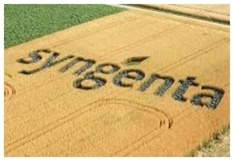$43-bn ChemChina-Syngenta merger approved by China; Indian nod awaited
13 Apr 2017
State-owned China National Chemical Corp's (ChemChina) $43 billion proposed acquisition of Swiss pesticides and seeds group Syngenta AG was yesterday unconditionally approved by the Chinese regulator, the two companies said in a statement.
 The deal, which has now been approved by regulators from 19 countries including the European Commission, has yet to get the nod from the Indian regulator.
The deal, which has now been approved by regulators from 19 countries including the European Commission, has yet to get the nod from the Indian regulator.
On gaining Chinese regulatory approval, the two companies said in a statement, "This represents a further step towards the closing of the transaction, which is expected to take place in the second quarter of 2017."
The approval from China's Ministry of Commerce comes a week after the US federal regulator approved the merger on condition that ChemChina divest three products in the US (See: US regulator grants conditional approval to $43-bn ChemChina-Syngenta merger).
In April 2016, ChemChina struck a friendly $43-billion deal with Syngenta in a bid to become the world's biggest supplier of pesticides and agrochemicals.
If successful, the deal will be the biggest overseas acquisition by a Chinese company, surpassing the 2008 purchase of China Netcom Group by China Unicom Hong Kong Ltd for $29 billion.
ChemChina's offer had come eight months after Syngenta spurned a $45-billion unsolicited takeover offer from US rival Monsanto Co, saying that the offer undervalued the company and posed execution risks.
Syngenta, which has annual revenues of $15.3 billion, was formed through the 2000 merger of Novartis Agribusiness and Zeneca Agrochemicals and has since grown through 13 acquisitions.
It is the world's largest crop chemical producer, and the third-largest in seeds and biotechnology by sales.
The company deals in herbicides, insecticides and fungicides for crop protection, field crops, vegetables and flower seeds, seed-care products and turf, garden, home care and public health products.
Listed on the Swiss and New York stock exchanges, Syngenta employs over 28,000 people in over 90 countries and has 12 production facilities across Switzerland, the US, the UK, Brazil, India, France and China.
Its main competitors are Monsanto Company, BASF, Dow AgroSciences, Bayer CropScience and DuPont Pioneer.

















